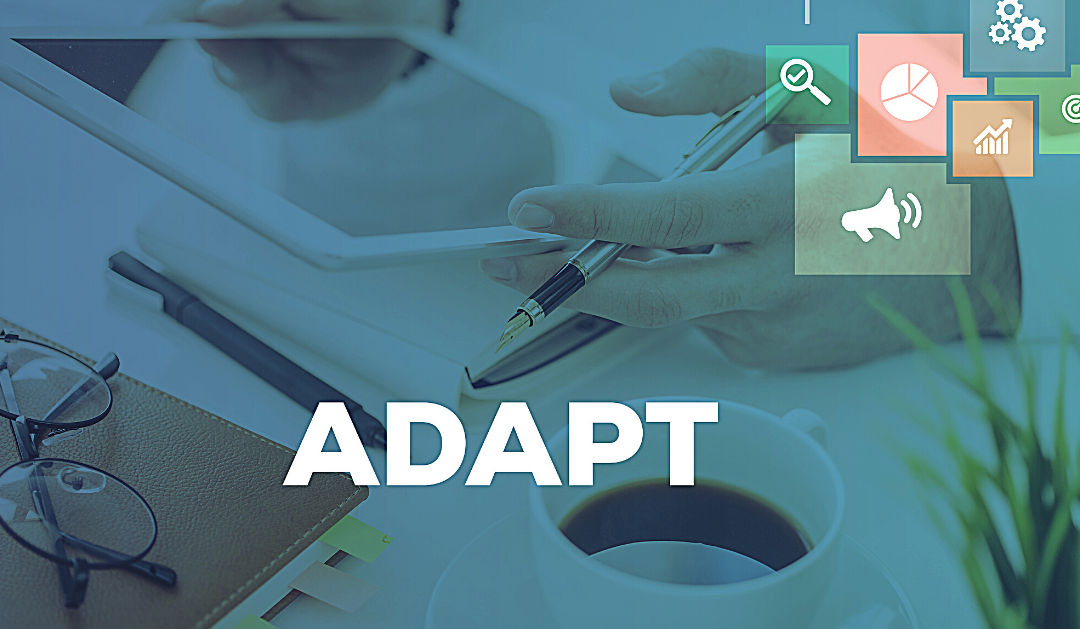From supply-chain disruptions to technological advancements, the complex healthcare space is evolving at an accelerated pace — especially in the aftermath of the pandemic. To stay afloat, organizations need to be prepared by embracing proactive practices and remaining nimble in today’s ever-changing world.
According to McKinsey & Company, “By becoming aware of and open to change now, we can maintain control over uncertainty before pressures build to the point where altering course is much more difficult, or even futile. Our research shows that adaptability is the critical success factor during periods of transformation and systemic change. It allows us to be faster and better at learning, and it orients us toward the opportunities ahead, not just the challenges.”
Adaptability allows hospitals and healthcare organizations to effectively recalibrate their strategy as needed to accommodate shifting patient demands, adopt new care models, like value-based care, and improve outcomes. Agility is not only fundamental in surviving change and uncertainty, but it’s a vital facet of driving long-term success.
So, what benefits can your healthcare organization reap by embracing adaptability?
Improved Communication & Employee Satisfaction
Adaptable organizations invest in — and genuinely care about — the well-being of their staff. From appropriate caseloads to adequate PPE, responding effectively in times of change or crisis requires a team that’s engaged and works collectively towards a shared purpose. Implementing strategic adjustments aimed at driving morale and safeguarding workers from burnout will naturally foster employee buy-in, keeping staff productive, energized and willing to contribute to moving the needle forward for the organization.
Effective planning and organizational flexibility also improve communication. Why? Because when transparency is exercised and leaders openly share everything from key issues that need to be addressed to the organization’s short and long–term goals, it encourages staff to participate, share their ideas and be receptive to change.
Think about it: wouldn’t you be motivated to help further new initiatives with a clear vision and well-thought-out game plan in place?
Increased Trust, Brand Equity and Retention
During the height of the pandemic, UCLA Health, like many others, faced the obstacle of cultivating trust. Consumers were reluctant to visit, avoiding waiting rooms out of fear that they’d contract the virus. The leadership team saw a real and pressing need to restore consumer confidence and ease their fears, creating a “comprehensive communication campaign called #TeamLA, designed to combat coronavirus misinformation,” according to Becker’s Hospital Review. UCLA’s Chief of Marketing, Tanya Adreadis, shared: “People were really hungry for guidance. To give it to them, we had to truly understand who we were communicating with, and what they needed to move toward a productive course of action.”
This shows that adaptable hospitals and facilities understand the importance of trust. In order to weather adversity or pursue new initiatives, organizations must work to instill confidence and earn the trust of both employees and their communities. When trust is built (and maintained), patients and staff alike are more likely to remain loyal during times of transition. And this can naturally encourage employee retention. Which is crucial – not just from a cost perspective, but for sustaining organizational health through strong, uninterrupted doctor-patient relationships.
UCLA is just one of many examples of how adaptability in the face of uncertainty plays a pivotal role in building resiliency and improving health outcomes. In circumstances like these, don’t be afraid to encourage staff to exercise creativity and contribute to the problem-solving process. All workers want to feel heard, included and appreciated. And by emphasizing these elements, you’ll see a corresponding uptick in productivity and retention.
Better Collaboration and Cooperation Among Staff
Cooperative and collaborative team members are the lifeblood of delivering quality patient care. Building the right framework for adaptability includes learning and teamwork. Establishing strategic planning models, while encouraging staff to explore or even step outside their comfort zones, will have far-reaching benefits like improved performance, engagement and collaborative practices. The idea is to have staff working harmoniously with one another to more quickly and efficiently roll out new initiatives or move closer to high-level goals.
The need for adaptability in healthcare is not a new concept. However, the pandemic revealed just how imperative staying flexible can be. In our ever-changing world, employers must be taking measures today to ensure they’re prepared for whatever circumstances arise in the future. And a big part of that puzzle is ensuring you have the right executives and healthcare staff in place to propel your organization forward.
Discover how the recruitment experts at Polaris can help your organization attract candidates that align with your long-term goals and vision by contacting us today.

